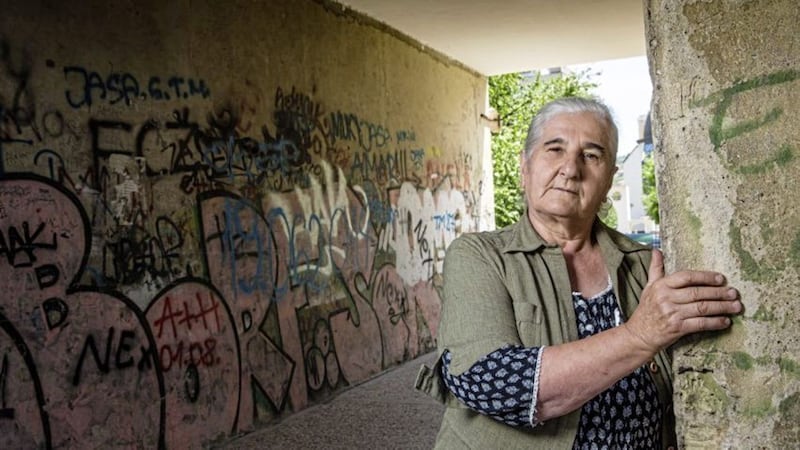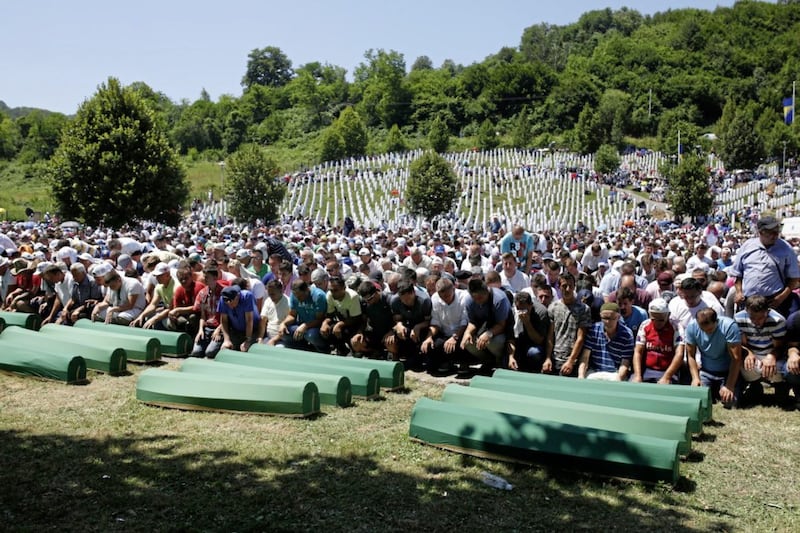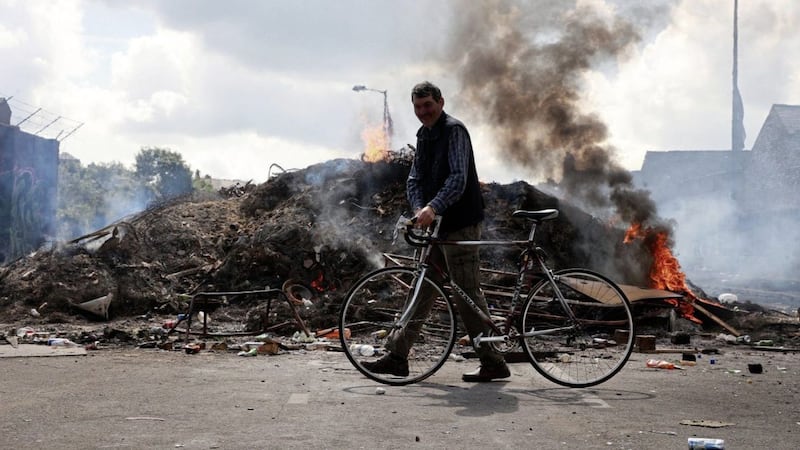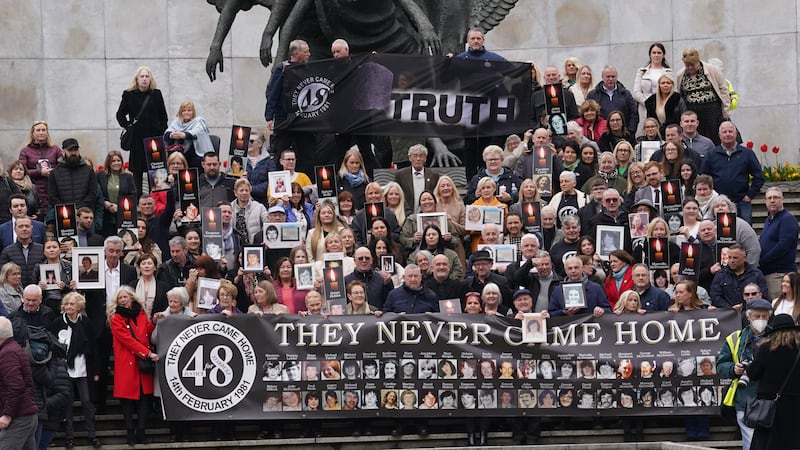AS the ozone layer over Belfast begins its long recovery before next July's Eleventh night bonfires, it would be churlish not to pick through the ashes and acknowledge that this week's Orangefest was the quietest yet.
A frictionless Twelfth, as Theresa May might say, could even be a real possibility; the pips have been squeezed out of it.
Contentious parades have all but gone, and the caravan at Twaddell Avenue started its summer holidays long before the Orange parade passed Ardoyne on the Twelfth.
As well as injunctions and a generous council pallet storage scheme, other interesting developments in Belfast included - in a move straight out of the Sinn Féin playbook - the rebranding of bonfire sites as 'cultural expression zones'.
In the interests of equality, dignity and respect, Sinn Féin will doubtless now support the further zoning of cultural expression.
The most surprising feature of the week - perhaps of any week, ever - was the lack of expression, cultural or otherwise, from Jim Rodgers.
Mr Rodgers, an Ulster Unionist councillor for the Ormiston ward in east Belfast, is a phenomenon.
You may know him as Belfast's former-lord-mayor-in-perpetuity, a title he shares with Máirtín Ó Muilleoir, Sinn Féin's budget-dodging former finance minister.
Mr Rodgers is never knowingly lost for words on a range of subjects and, like Mr Ó Muilleoir, he happily takes to the airwaves with the energy, noise and lack of direction of a Dyson hand dryer.
Bus lanes appear to be a speciality. You may already be familiar with his contributions to BBC Radio Ulster's Nolan Show or, if you read widely, his quotes in the Belfast Telegraph.
However, even Mr Rodgers - even. Mr. Rodgers. - would not talk about the council injunctions against four bonfire sites in the east of the city, nor the fact that unionist councillors had supported the move.
A joint statement from the DUP and the PUP also ignored the injunctions with the same alacrity and determination that James Brokenshire ignores talks deadlines and Jeffrey Donaldson dodges questions about the source of its £435,000 Brexit money.
Mr Rodgers is never knowingly lost for words on a range of subjects and, like Mr Ó Muilleoir, he happily takes to the airwaves with the energy, noise and lack of direction of a Dyson hand dryer
To call the council's bonfire strategy confused would be an understatement, and it puts unionist councillors in a particular bind - are they for or against the bonfire builders and their fledgling cultural expression zones?
Political leadership requires consistency; the best that can be said for Belfast's unionist councillors is that they are consistently inconsistent.
But Belfast is a world apart from what goes on in the rest of Northern Ireland, at least where friction around flags, parades, bands, bonfires and the loyal orders is concerned.
It is useful to be reminded of the fact, just as it is worth ignoring our parochial reflexes and remembering that the world does not revolve around the north and our petty local difficulties. We need to catch ourselves on; even a smidgen of global perspective goes a long way.
For example, the worst humanitarian crisis since the Second World War, as the United Nations describes it, is currently being experienced by 25 million people facing hunger in east Africa.
This is also Srebrenica Memorial Week, which further helps to illustrate the point.
As final preparations for bonfires and Twelfth demonstrations were being made in Northern Ireland on July 11 1995, on the other side of Europe the genocide of more than 8,000 men and boys was getting underway in the town of Srebrenica in Bosnia.
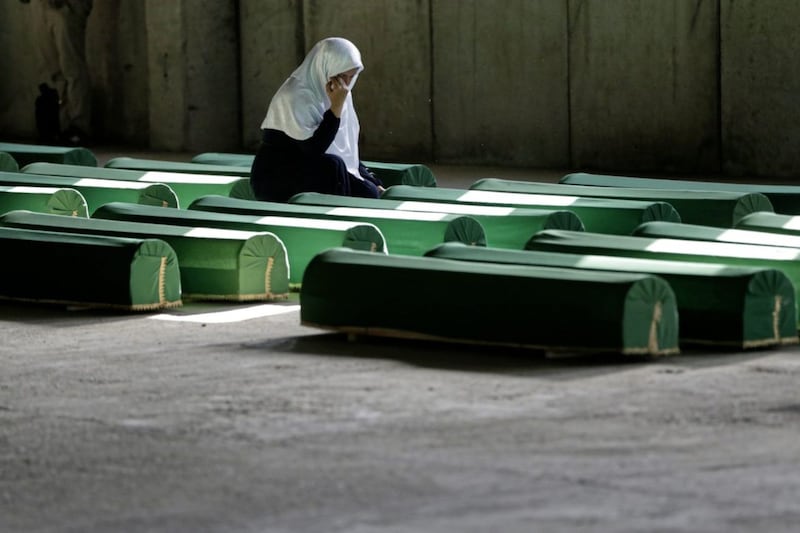
They were murdered by Serb forces led by General Ratko Mladic because they were Muslims.
Srebrenica had been declared a UN 'safe zone' but rather than find safety, the Dutch soldiers who were supposed to be offering the people protection allowed them to be handed them over to Mladic and his troops.
Men and boys were systematically separated from the women and loaded on to buses and lorries to be executed at sites across the area.
Many of the women were raped and tortured and, in just a few days, 8,372 men and boys were killed and their bodies dumped in mass graves.
Later, their remains were dug up by the Serb army and re-buried; different parts of the same bodies have been found many miles apart.
Munira Subašic, a survivor of the genocide was in Belfast this week with the Remembering Srebrenica charity, to share her story with quiet dignity.
Her husband Hilmo and youngest son Nermin, who was 17 at the time, were taken by Bosnian Serb soldiers.
Years later, Hilmo's body was discovered in a mass grave and Munira buried him in 2004.
However, only two small bones from Nermin's remains have been recovered from mass graves at sites of execution sites 15 miles apart.
The Srebrenica story has many threads - identity, legacy, forgiveness, justice - which are also woven deeply into our own story.
"Like every other region, we must commit to learning the lessons of the past as we try to build a more peaceful, tolerant future," says Munira.
For us, it will take much more than a quiet Twelfth to suggest we are we really learning any lessons from our own past.
